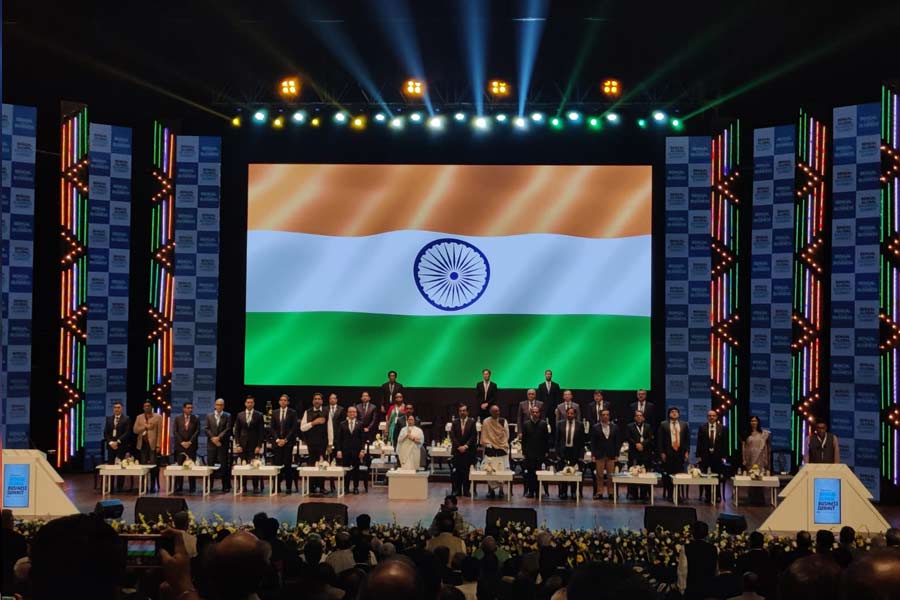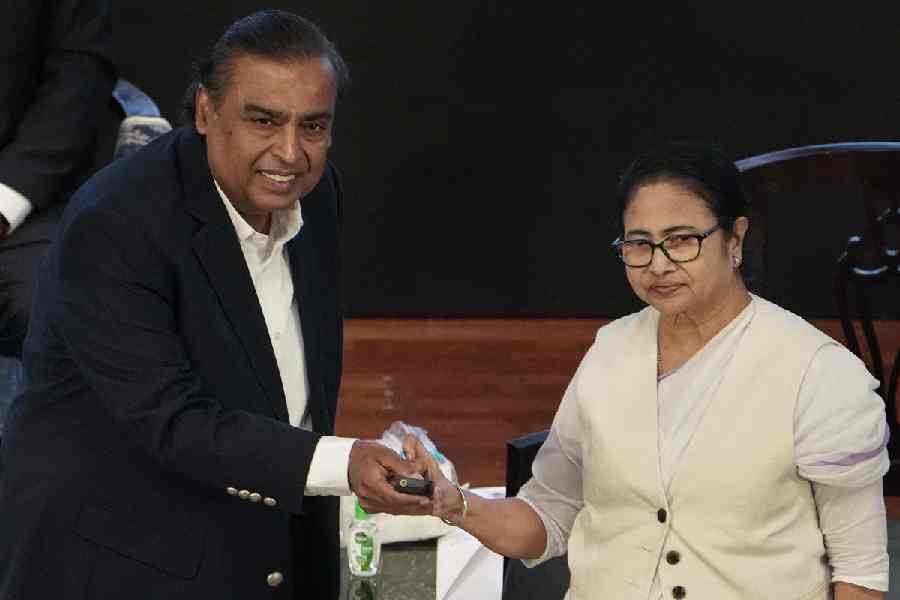West Bengal received investment proposals amounting to over Rs 3.76 lakh crore in the seventh edition of Bengal Global Business Summit 2023, chief minister Mamata Banerjee announced. The figure is about Rs 34,000 crore higher than what the state received as promises in the previous edition of the Summit in 2022.
Speaking at the valedictory session at the end of the two-day summit, Banerjee said: “In total, a sum of Rs 3,76,288 crore has been the investment promise made by the international and national business persons present in the summit. As many as 188 MoUs have been signed and a large number of new industrial policies for creating an enabling environment have been announced. That aside, 188 MoUs and Letters of Intent have been signed by the state and private entrepreneurs who participated in the conclave.”
Last year, 137 MoUs (51 less than this year) were signed, government figures suggested.
“Attended by 400 international delegates, representatives from 17 partner countries, business and official delegations from nearly 40 countries and 15 Ambassadors and High Commissioners from different countries, this was a truly globally participatory event,” Banerjee later posted on X. “In sum, stupendous success!! Thanks to all!” she went on to add.
Mixing politics with business, Banerjee, in her customary style, used the opportunity to take a dig at the Centre’s taxation policies and central investigation agency threats. “In a democracy the Centre and the state are often ruled by opposing political parties. But when it comes to the question of the development of people, the two sides must work together. In the case of Bengal, the state and the Centre are ruled by different parties. But one thing I cannot accept is why our industries should leave India. Why should they be always concerned about some agency coming to hold them by their neck?” the chief minister said.
“They have every right to collect taxes. Everyone is paying taxes. There’s no problem there. But it becomes a problem when you overtax people because it then becomes a mental agony,” she added.
A set of eight sector-specific meetings co-chaired jointly by industry captains and the state government which took place earlier in the day provided fleeting insights into the nature of business deals struck at the conclave. Sanjiv Puri, MD, ITC who co-chaired the agriculture and agri-allied sector meeting informed that 93 MoUs were signed between the state and the private sector amounting to investment promises of Rs 1314 crores ove the next two years. Mehul Mohanka, MD Tega Industries and co-chair for the Manufacturing and Export sector, said 11 MoUs were signed during the course of the meet over five sub-sectors including leather, plastics, garments and foundry.
In the education sector, four MoUs were signed between the state and institutions both domestic and foreign during the run up to the summit, informed Harsh Neotia, Ambuja Group chairman and co-chair at the day’s session for the sector. Another 13 MoUs were signed during the course of the day with promises of investments of Rs 1676 crore in the school education sector and another Rs 3060 crore in higher education, Neotia stated.
While Sanjay Budhia, Patton Group MD who co-chaired the International Trade and Logistics sector meet, spoke of doubling the state’s current annual export share of Rs one lakh crore over the next decade, Rudra Chatterjee MD, Luxmi Tea who co-chaired the Tourism sector session informed of the industries plans to further boost up the sector which has recently acquired industry status and is growing at a 13 percent compound rate in the state over the past five years. Rupak Barua, CEO AMRI Hospitals and co-chair for the health sector meeting informed that 25 LoIs were closed during the session, potentially attracting investments of Rs 7933 crores in the sector.
In the IT/ITES sector, five MoUs were signed with a potential investment figure of Rs 4000 crore, said Alapan Bandyopadhyay, chief advisor to the chief minister and an announcement for setting up of a centre for VFX and graphics training was announced by film director Goutam Ghosh who co-chaired the Creative Economy and Film Industry sub-sector talks.
Banerjee, though, stressed on the state’s focus on the employment-generating MSME sector. “A road-side eatery often becomes more important than luxury hotels because they cater to more people. We have created many home-stay provisions in the tourism sector. I would urge the small scale industries to build their own brands and don’t feel shy to project them,” she said in her concluding speech.











